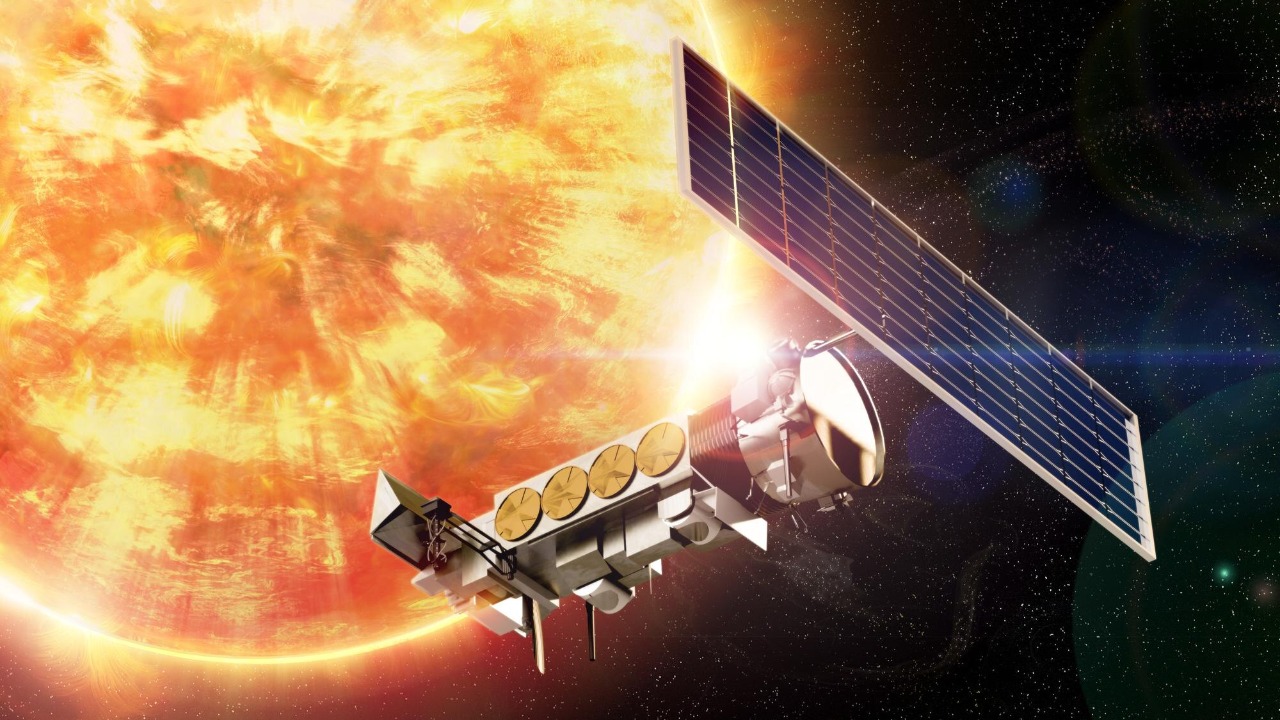
Blue Origin’s New Glenn rocket, tasked with carrying NASA’s Mars mission known as ESCAPADE, has had its launch scrubbed due to the threat of solar storms on November 12, 2025. This delay is a result of intense space weather conditions, which have also impacted the Space Force’s efforts to certify the new rocket. This marks a postponement of the launch attempt-2, following previous scrubs attributed to solar activity.
Overview of the New Glenn Rocket
Blue Origin’s New Glenn rocket is a heavy-lift vehicle designed specifically for missions like NASA’s Mars payloads. The rocket’s development and purpose are integral to the advancement of space exploration. The New Glenn rocket plays a crucial role in carrying the ESCAPADE Mars mission components from Cape Canaveral, marking a significant step in interplanetary research.
This launch was to be the second attempt for New Glenn, highlighting the ongoing need for certification. The certification process is a critical aspect of ensuring the rocket’s safety and reliability for future missions.
Solar Storms and Space Weather Risks
Solar storms are bursts of radiation from the sun that can disrupt satellite communications and rocket electronics during launch windows. On November 12, 2025, these storms posed a significant risk to the New Glenn launch. Intense space weather is a key factor in postponing launches, as it can affect trajectory and payload safety for Mars-bound missions.
Space weather delays specifically threatened the New Glenn’s ability to deploy NASA’s Mars instruments without interference. The safety of the payload is paramount, and any risk of disruption due to solar activity necessitates a delay.
Impact on NASA’s ESCAPADE Mission
The ESCAPADE Mars mission is a NASA initiative designed to study the planet’s magnetosphere using twin spacecraft launched via New Glenn. Solar storms forced a scrub, delaying the mission’s November 12, 2025, liftoff and potentially impacting the arrival timeline at Mars. The mission’s reliance on precise launch conditions has now been postponed due to intense space weather risks.
The postponement of the mission underscores the challenges of space exploration and the need for meticulous planning and preparation. The delay also highlights the importance of understanding and mitigating the effects of space weather on space missions.
Space Force Certification Challenges
The Space Force has a requirement to certify the New Glenn rocket for national security launches. However, this process has been delayed by the solar storms on November 12, 2025. The scrub affects broader U.S. space capabilities, as the rocket has a dual-use for NASA and military payloads.
The postponement has ripple effects on Space Force timelines for integrating New Glenn into operational fleets. It underscores the challenges faced by the Space Force in ensuring the readiness of new technology for national security purposes, as highlighted by Air and Space Forces.
Previous Launch Attempts and Scrubs
Previous attempts to launch the New Glenn rocket have also been scrubbed. The latest postponement on November 13, 2025, due to solar activity, follows a pattern from attempt-1 failures. The question remains whether the solar storm directly forced the latest scrub, or if other factors were at play.
Blue Origin’s repeated postponements of the rocket launch carrying NASA’s Mars mission highlight the escalating challenges posed by space weather. The company must navigate these challenges to ensure the successful launch and deployment of the Mars mission.
Broader Implications for Space Launches
The intense space weather on November 12, 2025, underscores vulnerabilities in commercial rocket schedules like New Glenn’s. The delay has effects on international Mars exploration timelines, given NASA’s partnership with Blue Origin. As a result, ongoing solar storm monitoring by agencies is crucial to reschedule the launch without further postponements.
The impact of solar storms on space launches is a reminder of the inherent risks and challenges of space exploration. As we push the boundaries of our knowledge and capabilities, we must also develop robust strategies to manage and mitigate these risks.
More from MorningOverview